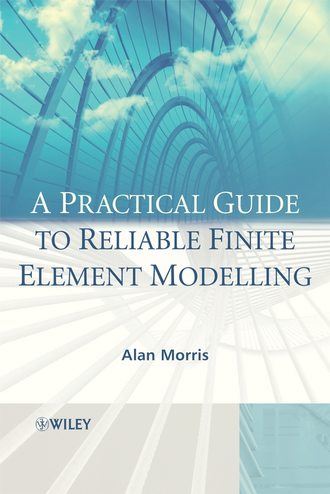A Practical Guide to Reliable Finite Element Modelling
Группа авторов
Many books have been written about the finite element method; little however has been written about procedures that assist a practicing engineer in undertaking an analysis in such a way that errors and uncertainties can be controlled. In A Practical Guide to Reliable Finite Element Modelling, Morris addresses this important area. His book begins by introducing the reader to finite element analysis (FEA), covering the fundamental principles of the method, whilst also outlining the potential problems involved. He then establishes consistent methods for carrying out analyses and obtaining accurate and reliable results, concluding with a new method for undertaking error control led analyses which is illustrated by means of two case studies. The book addresses a number of topics that: • Systematically cover an introduction to FEA, how computers build linear-static and linear-dynamic finite element models, the identification of error sources, error control methods and error-controlled analyses. • Enable the reader to support the design of complex structures with reliable, repeatable analyses using the finite element method. • Provide a basis for establishing good practice that could underpin a legal defence in the event of a claim for negligence. A Practical Guide to Reliable Finite Element Modelling will appeal to practising engineers engaged in conducting regular finite element analyses, particularly those new to the field. It will also be a resource for postgraduate students and researchers addressing problems associated with errors in the finite element method. This book is supported by an author maintained website at http://www.femec.co.uk
- Категория: зарубежная образовательная литература
- Правообладатель: John Wiley & Sons Limited
- Возрастное ограничение: 0+
- ISBN: 9780470512104
- Легальная стоимость: 15599.43 руб.





